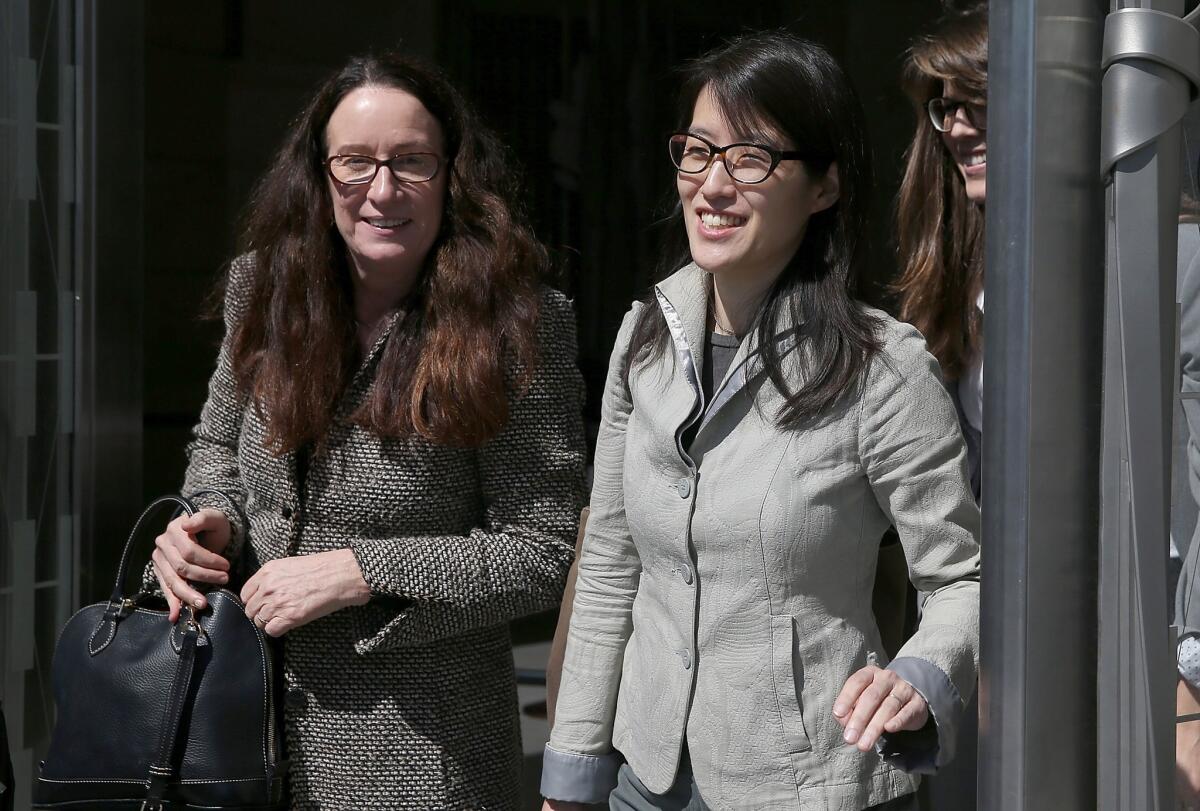5 reasons Silicon Valley is riveted by the Ellen Pao trial

With salacious details of workplace trysts and alleged discrimination and the potentially high financial stakes involved, the trial of venture capital firm Kleiner Perkins Caufield & Byers has captured the imagination of Silicon Valley. As the jury continues to deliberate over whether the firm discriminated against former junior partner Ellen Pao because of her gender, technology companies and venture capital firms are keeping a close eye on the trial, and with good reason. Here are five reasons why.
1. SALACIOUS DETAILS
The trial has so far aired the dirty laundry of one of Silicon Valley’s most prominent venture capital firms. Weeks of testimony exposed details of workplace trysts, all-male outings, porn talk and alleged routine harassment. There have been accusations of a male colleague retaliating against Pao in the workplace after she ended a romantic relationship between them. Another female former partner testified that the same male colleague touched her with his leg under a table and appeared at her hotel room one night in a bathrobe and slippers. Pao’s attorneys have painted Kleiner Perkins as a boys club where little was done to prevent gender discrimination.
2. HIGH-PROFILE VENTURE CAPITAL FIRM
Kleiner Perkins is a highly successful venture capital firm known throughout Silicon Valley for its track record of savvy investments. Since its founding in 1972, it has backed companies such as Amazon, Google, Compaq, Netscape and Electronic Arts. More recent investments include Snapchat, Twitter, Spotify and Uber. As a major player in the world of technology, what happens at Kleiner Perkins matters.
3. POTENTIALLY HUGE PAYOUT
Pao is seeking $16 million in lost wages and bonuses -- a drop in a bucket for a firm that holds stakes in multibillion-dollar companies. The payout could potentially be significant if she is awarded punitive damages, though. That amount will “be an issue decided later,” Judge Harold Kahn told the jury on Wednesday. Punitive damages could raise Pao’s total award to as much as $160 million.
4. A RELATABLE AND OVERDUE BATTLE
Women and minorities in the tech sector have long experienced discrimination. The Center for Talent Innovation found in a 2008 study that more than 50% of women working in tech will leave due to hostile work environments. A follow-up study from 2014 found that little had changed. Many women in tech see some of their own experiences reflected in Pao’s allegations.
“The patterns of subtle stereotyping [that Pao is] alleging are widespread everywhere, and they’re widespread in tech,” said Joan Williams, a law professor at UC Hastings.
Melinda Epler, chief executive of Change Catalyst, an online platform that helps mentor women entrepreneurs, said the trial speaks to many women who think they’re alone in facing discrimination.
“When you’re in the midst of sexual harassment or discrimination or unconscious bias, you don’t necessarily know it’s happening to you,” Epler said. “You think it’s you that’s the problem. So any time a case like this comes out and becomes part of the public conversation, it reaches a few women and minorities, and at least they now know it’s not them. I think that’s really important.”
5. IMPLICATIONS FOR OTHER TECH AND VENTURE CAPITAL FIRMS
Win or lose, the trial has already caused a number of tech and venture capital firms to assess the cultural barriers to advancing women in the workplace in Silicon Valley, said Kelly Dermody, managing partner at San Francisco law firm Lieff Cabraser Heimann & Bernstein.
“If she’s successful, it puts a finer point on that,” Dermody said. “If companies do not review these issues, they could face similar outcomes. There is a possibility people might take the wrong message if the plaintiff loses, but given people are already considering how to improve the workplace … I think this case is having a positive impact.”
Twitter: @traceylien







